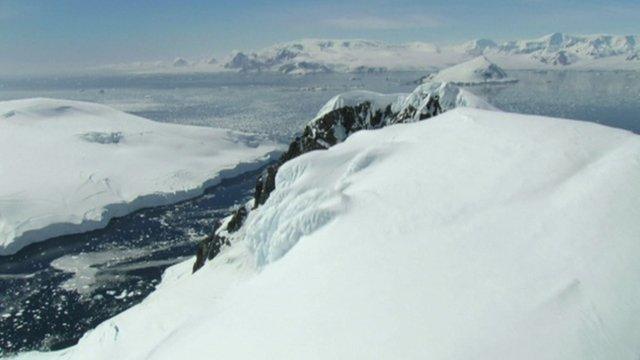'Heroic' Antarctic explorers left sea-ice clues
- Published
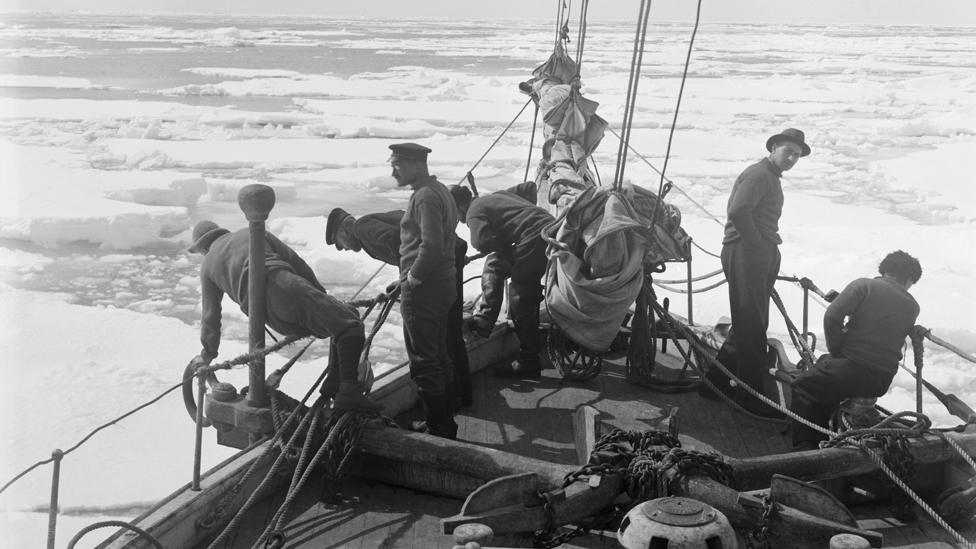
Log books from the early Antarctic expeditions indicate that the area of summer sea-ice around the continent has barely changed in size in a century.
Researchers have studied the records of pioneering explorers, including Captain Robert Scott and Sir Ernest Shackleton.
The study suggests that Antarctic sea-ice is much less sensitive to climate change than the Arctic, which has declined dramatically.
The research has been published in The Cryosphere, external journal.
A century ago Captain Scott and Sir Ernest Shackleton were among those who ventured into completely uncharted territory.
They were the bravest explorers of their age. At the time, their voyages brought a totally new understanding of the Antarctic landscape. And now their records are giving scientists new data on the impacts of climate change.
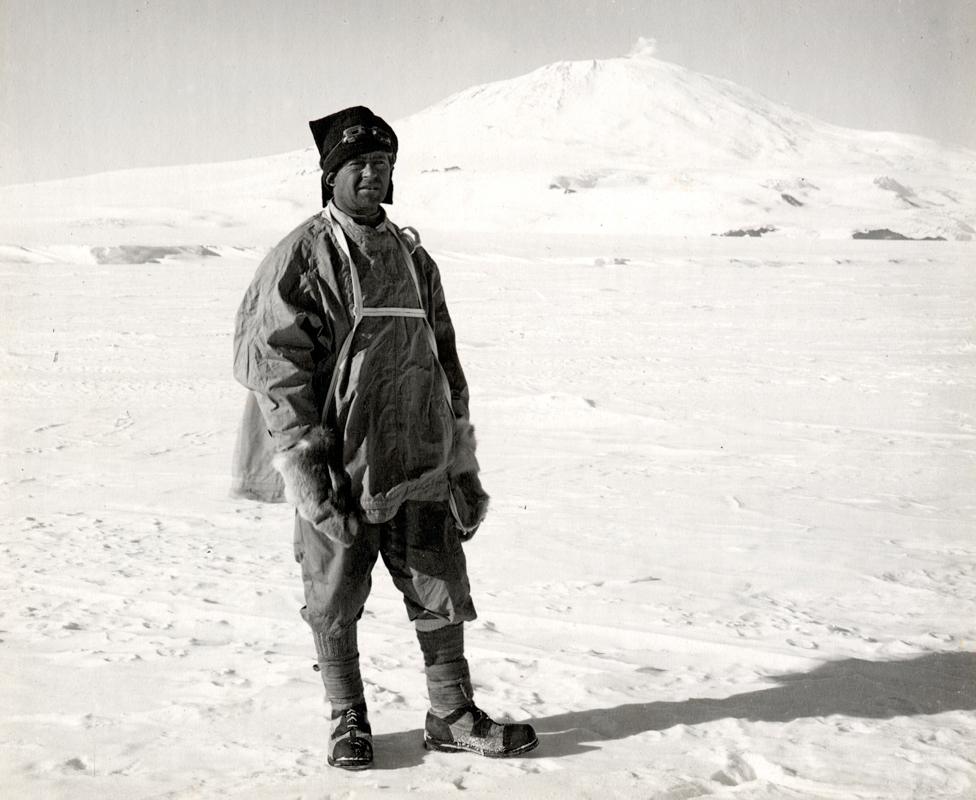
Captain Scott kept detailed accounts of the position of his ship and the extent of sea-ice.
Some data collected by whaling vessels suggests the extent of Antarctic summer (December, January, February, March) sea-ice was significantly higher during the 1950s, before a steep decline returned it to around six million square kilometres (average across the four months) in recent decades.
But the log books of the "heroic explorers" show that over the long term, the amount of ice has changed very little. It has merely ebbed and flowed.
Dr Jonathan Day of the University of Reading who led the study says his analysis indicates that the extent of Antarctic summer sea-ice is at most 14% smaller now than during the early 1900s.
"The Antarctic sea-ice a hundred years ago was fairly similar to what it is today. That is not much if you contrast this with the Arctic which has lost 26% of its extent," he told BBC News.
Dr Day says his results suggest the climate of Antarctica may have fluctuated significantly throughout the 20th Century, swinging between decades of high ice cover and decades of low cover, rather than a steady downward trend.
"We know that sea-ice in the Antarctic has increased slightly over the past 30 years, since satellite observations began. Scientists have been grappling to understand this trend in the context of global warming, but these new findings suggest it may not be anything new.
"If ice levels were as low a century ago as estimated in this research, then a similar increase may have occurred between then and the middle of the century, when previous studies suggest ice levels were far higher."
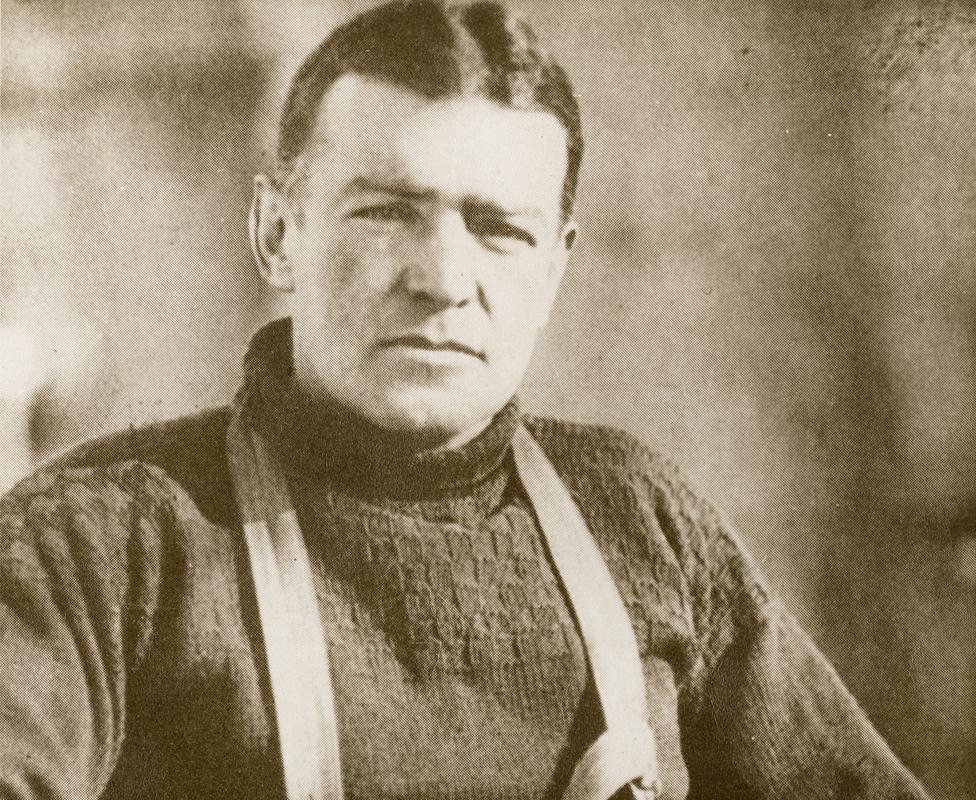
Sir Ernest Shackleton went to the Antarctic in search of glory and is among those who left a valuable scientific resource for climate scientists
Captain Scott died along with his team in 1912 after missing out on being the first to reach the South Pole by a matter of weeks. Shackleton's ship sank after becoming trapped in ice in 1915 as he and his crew attempted the first ever cross-Antarctic trek.
Scott and Shackleton went to the Antarctic in search of glory - but a century on - their ultimate legacy will be to have helped scientists learn more about climate change.
Follow Pallab on Twitter, external
- Published1 April 2013
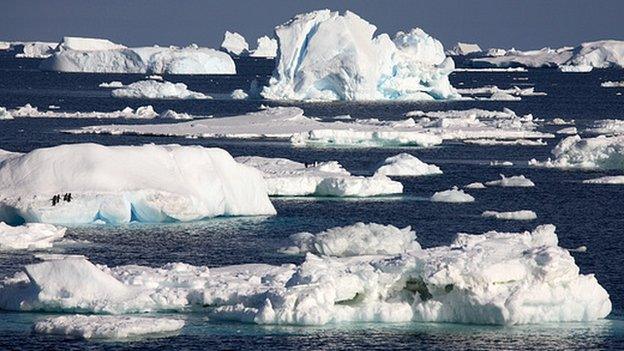
- Published29 October 2014
